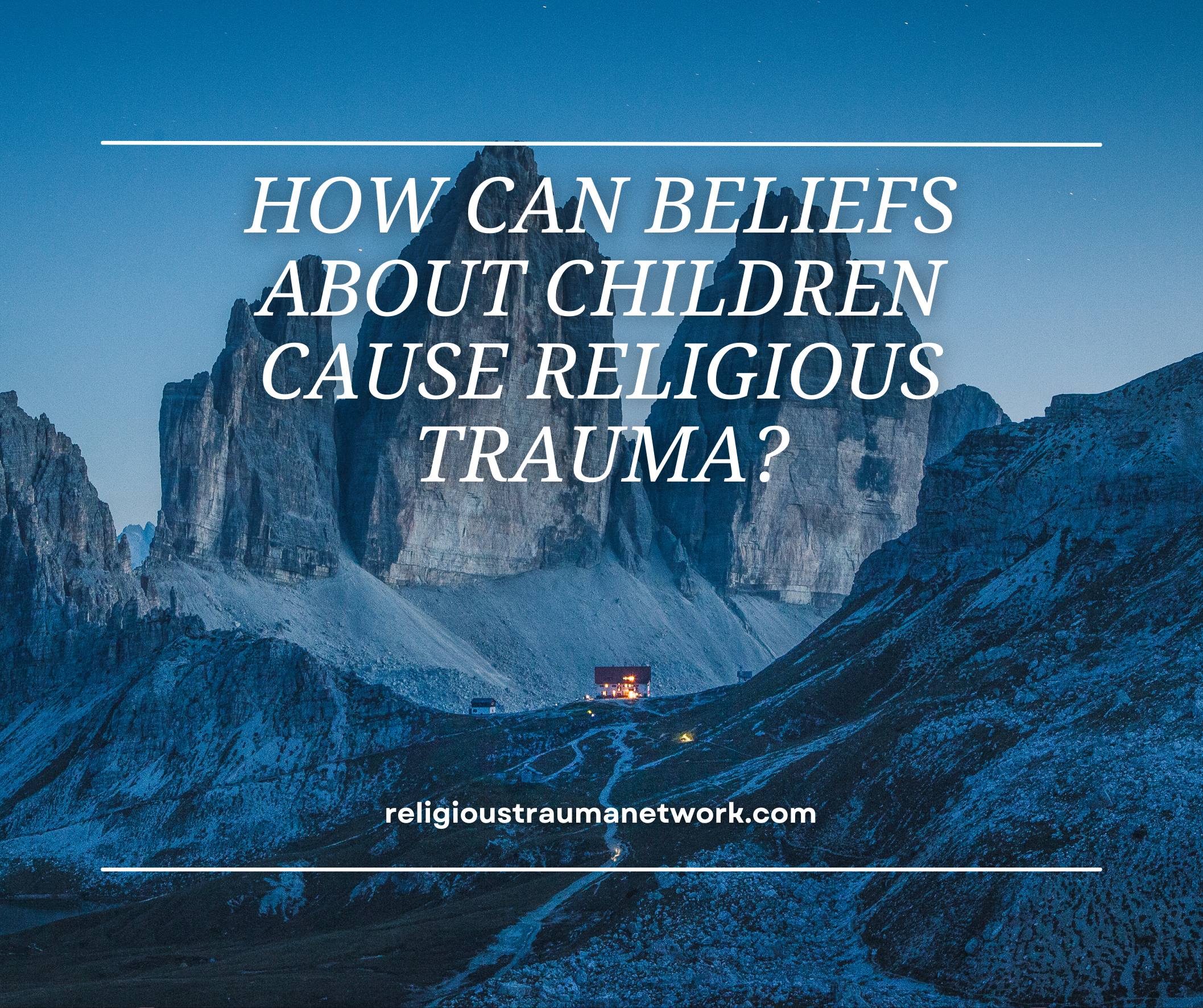
How Can Beliefs About Children Cause Religious Trauma?
Nothing says innocence any better than a newborn baby! How could our excitement over a precious new life be anything but healthy? Remarkably, what we believe about this baby is where the seeds of Religious Trauma (RT) can begin.
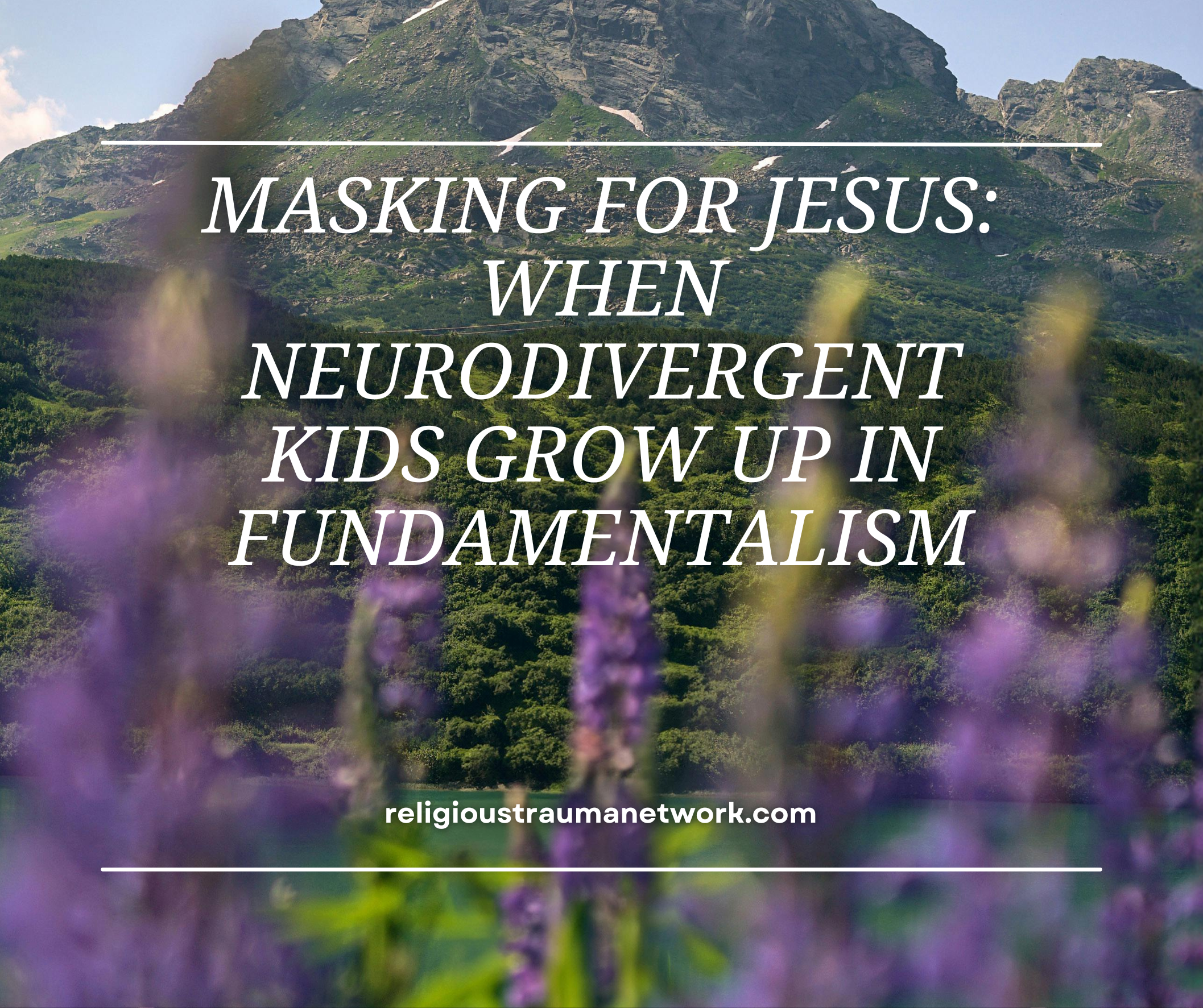
Masking for Jesus: When Neurodivergent Kids Grow Up In Fundamentalism
Neurodiverse kids with ADHD, autism, OCD, anxiety, or other neurodivergent wiring - raised in fundamentalist, high-demand Christian worlds often felt like square pegs hammered into round, heaven-or-hell holes. Your brain was doing what brains do, but the environment demanded a very specific shape: quiet, compliant, perfectly pious, always performing. When you didn’t fit, it wasn’t seen as a wiring difference. It was a spiritual defect or conversely, your masking was glorified. And that mismatch left marks that make total sense when you look back.
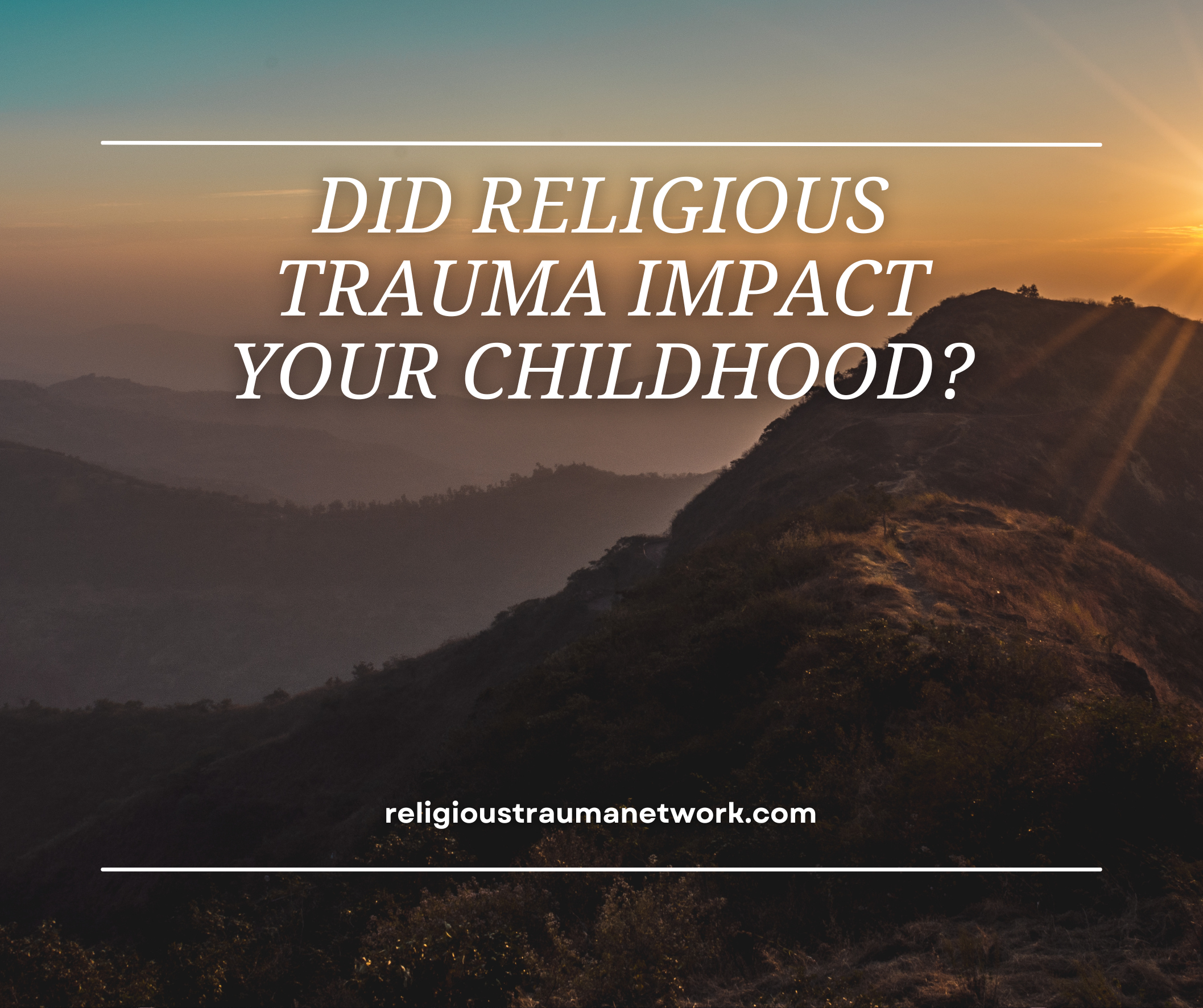
Did Religious Trauma Impact Your Childhood?
Not every childhood story of Religious Trauma (RT) is the same. Yet, several consistent themes occur in the lives of children who grow up in religious communities. To illustrate this, I will begin with the story of three children. Every story is different.

When Faith Feels Like Fear: How Childhood Theology Shapes the Nervous System
Many adults who grew up in church describe a confusing experience later in life. They may still value faith, Scripture, or Jesus, yet feel anxiety, shame, or fear surface in worship spaces, prayer, or conversations about sin, Satan, and hell. Others have stepped away from Christianity entirely, often naming childhood religious trauma as a central reason.

Accepting Blog Submissions: January-March, 2026
Accepting Blog Submissions: January-March, 2026
The Religious Trauma Network is pleased to announce our next guest blog series for January-March, 2026. We invite thoughtful, compassionate submissions that explore the themes outlined below. As always, we welcome a wide range of perspectives, religious backgrounds, and lived experiences.
Please note: Submissions that self‑promote (books, blogs, businesses, podcasts, etc.) will not be considered.
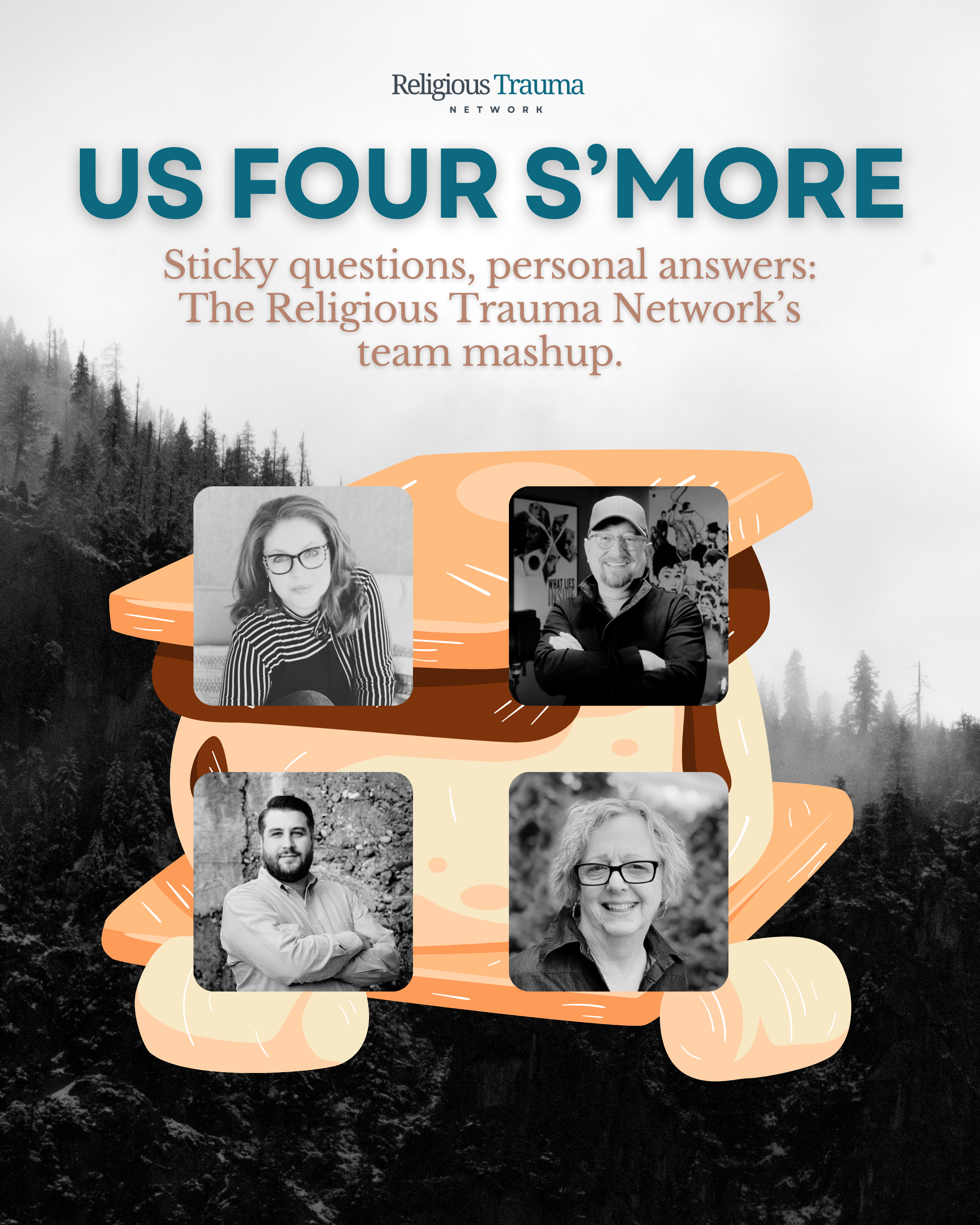
Us Four S’more: What’s one thing you wish your loved ones understood about your healing?
Sticky questions, personal answers:
The Religious Trauma Network’s team mashup.
What’s one thing you wish your loved ones understood about your healing?

What I Wish People Knew
As I walk this winding pathway of healing, I spend time taking care of my emotional and mental health and well-being…something I was told was not legitimate, did not deserve, and involved people who could not be trusted. As I am doing so, I am discovering things about myself and my journey that I wish other people could better understand.

Us Four S’more: What’s one red flag you wish you’d recognized sooner?
Sticky questions, personal answers:
The Religious Trauma Network’s team mashup.
What’s one red flag you wish you’d recognized sooner?

Rebuilding Faith: Overcoming Challenges After Leaving a Cult or High-Control Christian Community
I was 17 when I walked away from the church I was raised in. I didn’t leave because I stopped loving God. I left because I couldn’t stay in a system that was clearly harming people. I grew up in a world shaped by Fundamentalist theology: rigid, rule-heavy, and deeply controlling. On the surface, it looked like holiness: clean-cut families, bold preaching, strong convictions. But beneath that polished exterior, I saw something much darker. There was spiritual manipulation, emotional control, authoritarian leadership, and both emotional and sexual abuse.

Someone I Love Says Faith Hurt Them: What should I do? - A Resource
When someone you love says, “Religion or faith hurt me,” it can feel like the ground shifts beneath you. Maybe you’re surprised, heartbroken, confused—or unsure what to say next. You might feel protective of your faith tradition, or grieve the loss of shared beliefs. You might worry about saying the wrong thing, or feel helpless watching someone you care about wrestle with spiritual pain.
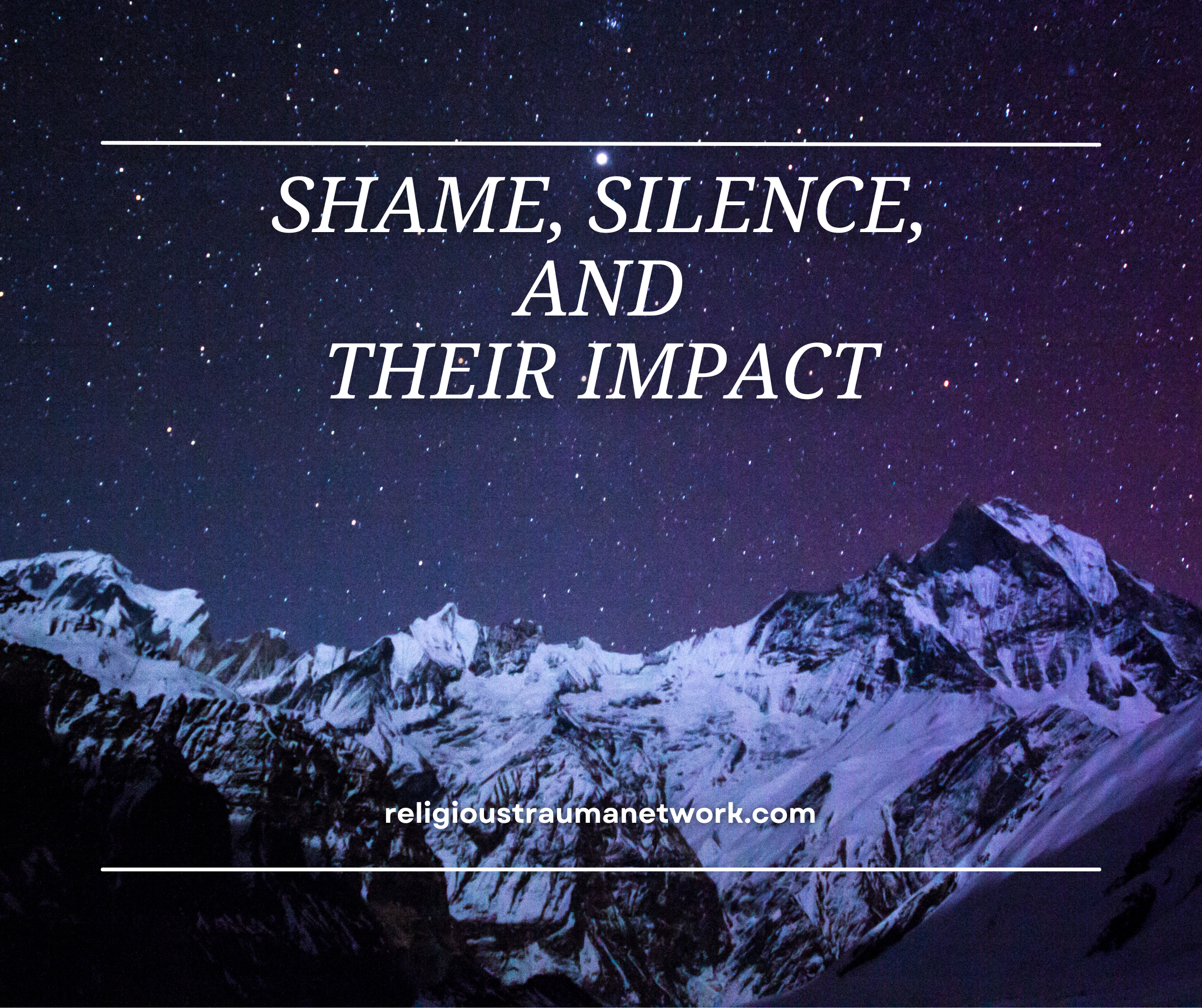
Shame, Silence, and Their Impact
When your experience felt unsettling or “off,” yet you couldn’t quite find the language to explain why, it became easy to downplay what had happened. Abuse probably wasn’t a word in your mind’s vocabulary, let alone your thoughts. You probably thought it was just a rough “season”, spiritually speaking, maybe you even chalked it up to a “bad church experience”. Worse than dismissing your own pain, you may have begun to believe that you were the problem.

You’re Allowed to Change Your Mind: A Critical Thinking Guide
For many survivors of religious trauma, the process of learning to think critically isn’t just intellectual—it’s deeply emotional. When unquestioned beliefs were once tied to safety, belonging, or identity, challenging those beliefs can feel destabilizing. That’s why we created this resource: You’re Allowed to Change Your Mind: A critical thinking guide for survivors of religious coercion or high-demand groups.

Us 4 S’more: How Has Your Understanding of Forgiveness Changed Over Time?
Sticky questions, personal answers:
The Religious Trauma Network’s team mashup.
How has your understanding of forgiveness changed over time?

Accepting Blog Submissions: October–December, 2025
The Religious Trauma Network is pleased to announce our next guest blog series for October, November, and December 2025. We invite submissions that thoughtfully explore the themes outlined below, while upholding our core values of respect and empowerment.
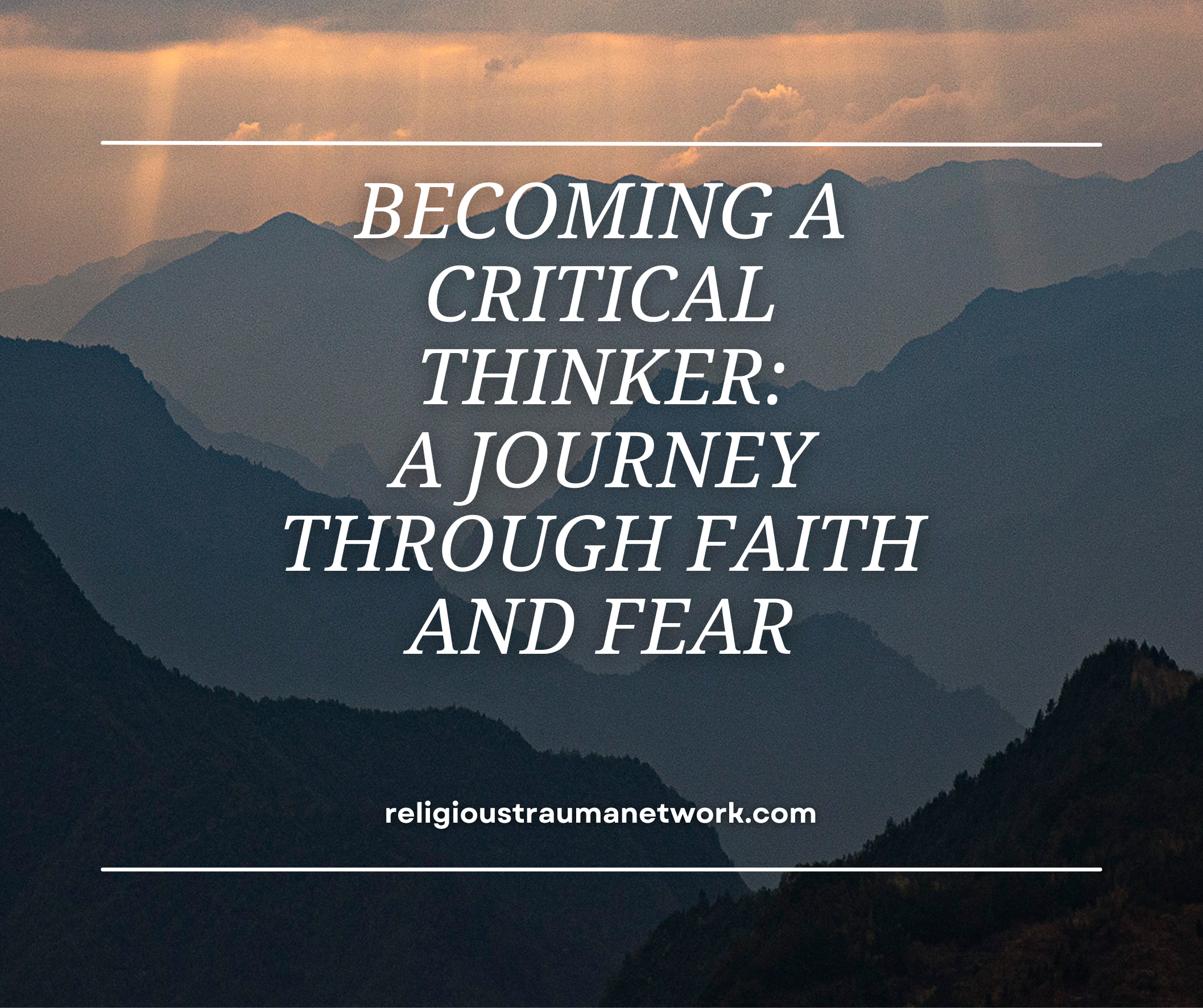
Becoming a Critical Thinker: A Journey Through Faith and Fear
I grew up in the Pentecostal and Non-denominational Charismatic branches of Evangelicalism. Even though we were not overtly dogmatic in certain ways, our subculture and its unspoken assumptions quietly and covertly shaped my beliefs. I had friends from diverse religious backgrounds, so I understood a broad spectrum of Christian experience existed. Still, I didn’t realize my own perspective was limited—like an ant walking across an elephant, thinking the little patch under foot was all there was, unaware of the vast complexity, edges and contours of the beast beneath me.
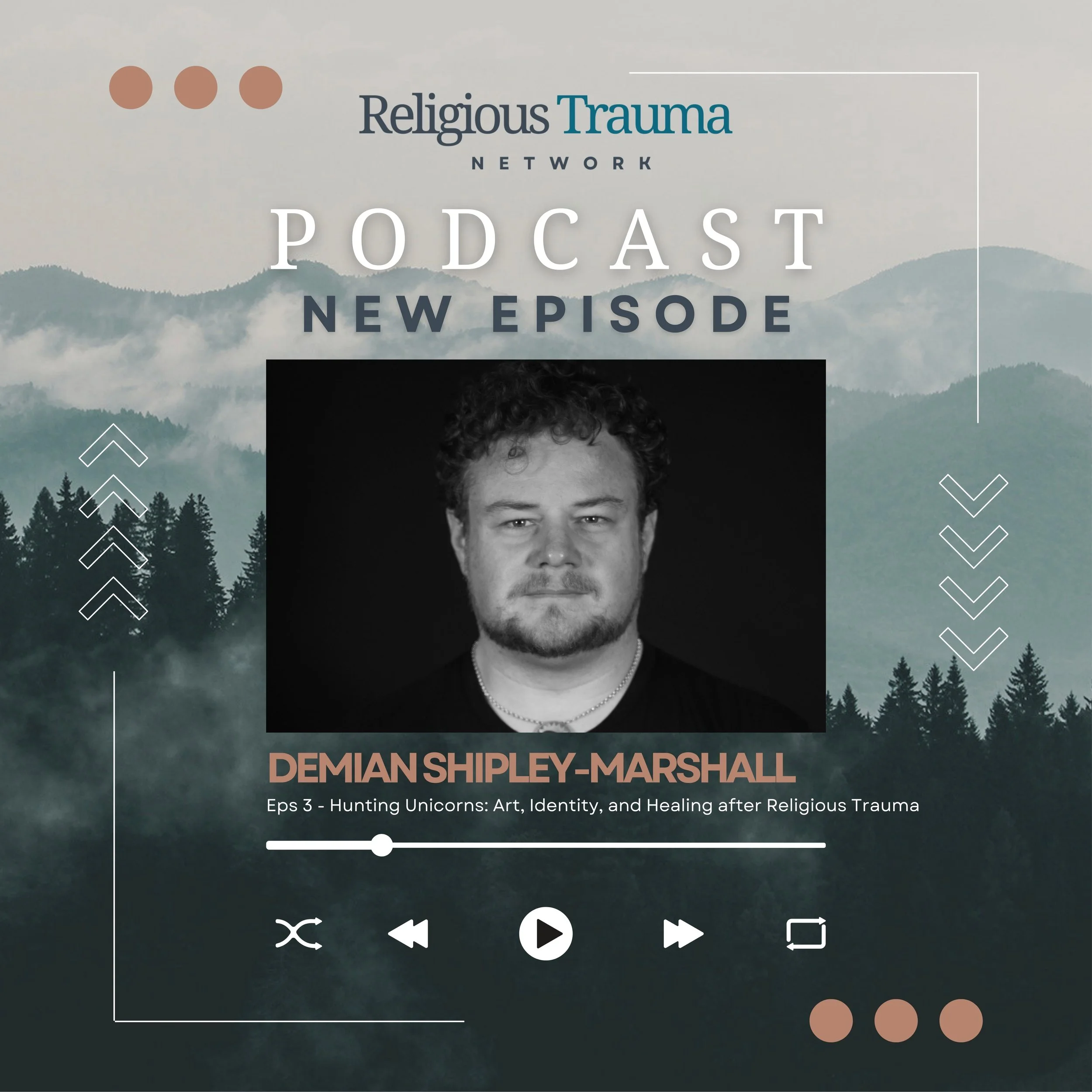
RTN Podcast - Hunting Unicorns: Art, Identity, and Healing after Religious Trauma with Demian Shipley-Marshall
In this episode of the Religious Trauma Network podcast, host Rebekah Drumsta sits down with multidisciplinary artist and designer Demian Shipley-Marshall, who shares his deeply personal journey from feeling like an outsider in a fundamentalist Christian community in the U.S. to finding healing and creative freedom in Australia.
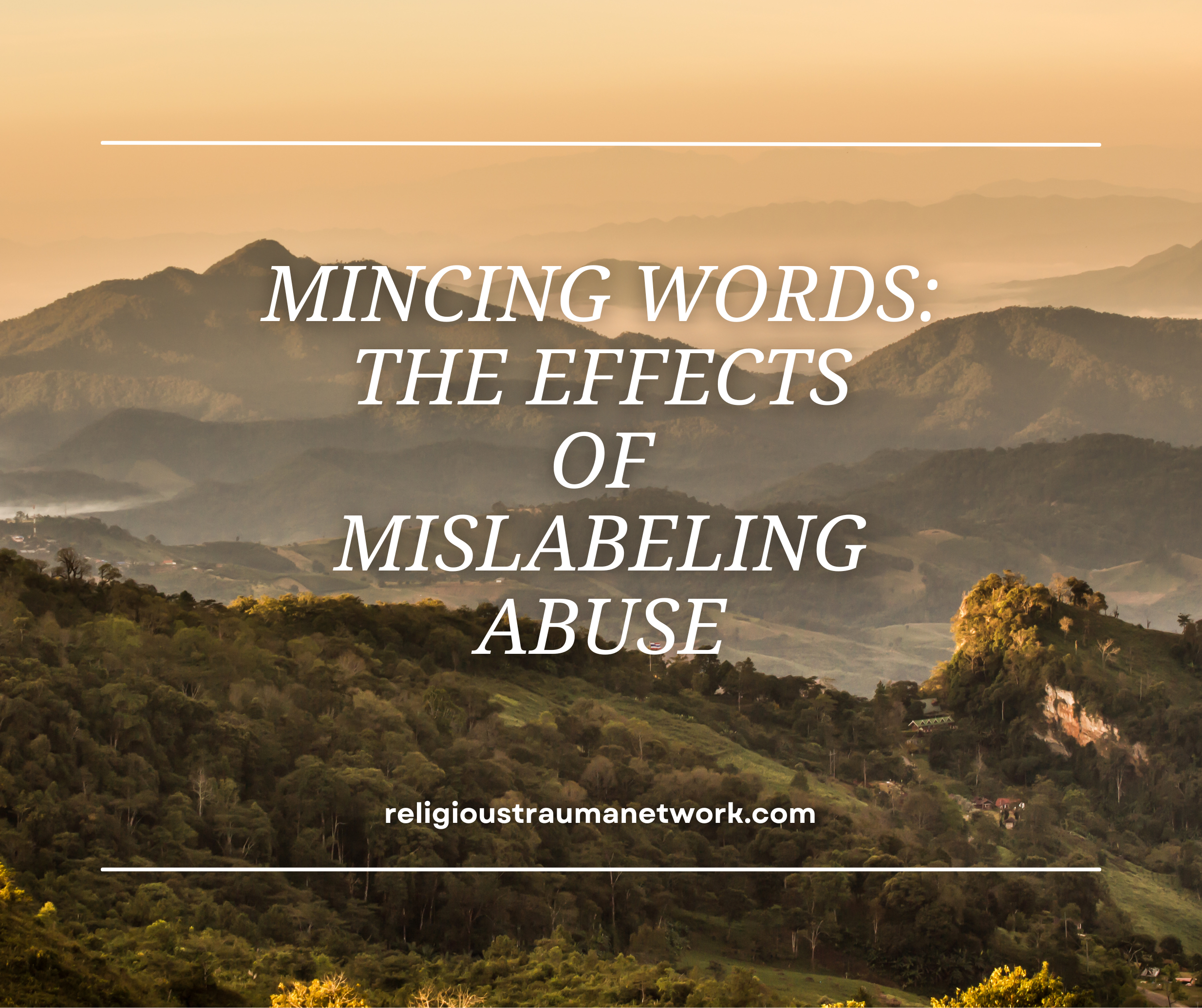
Mincing Words: The Effects of Mislabeling Abuse
How many stories have we heard of religious leaders admitting to “affairs,” “moral failings,” or “shortcomings”—only to later learn that what actually occurred was an egregious crime? How often have survivors come forward to tell their stories, only to be pushed aside while the spotlight remains on the perpetrator? We have seen offenders applauded for their “honesty” and prayed over in public, while their victims sit in the same room—unseen and unheard.
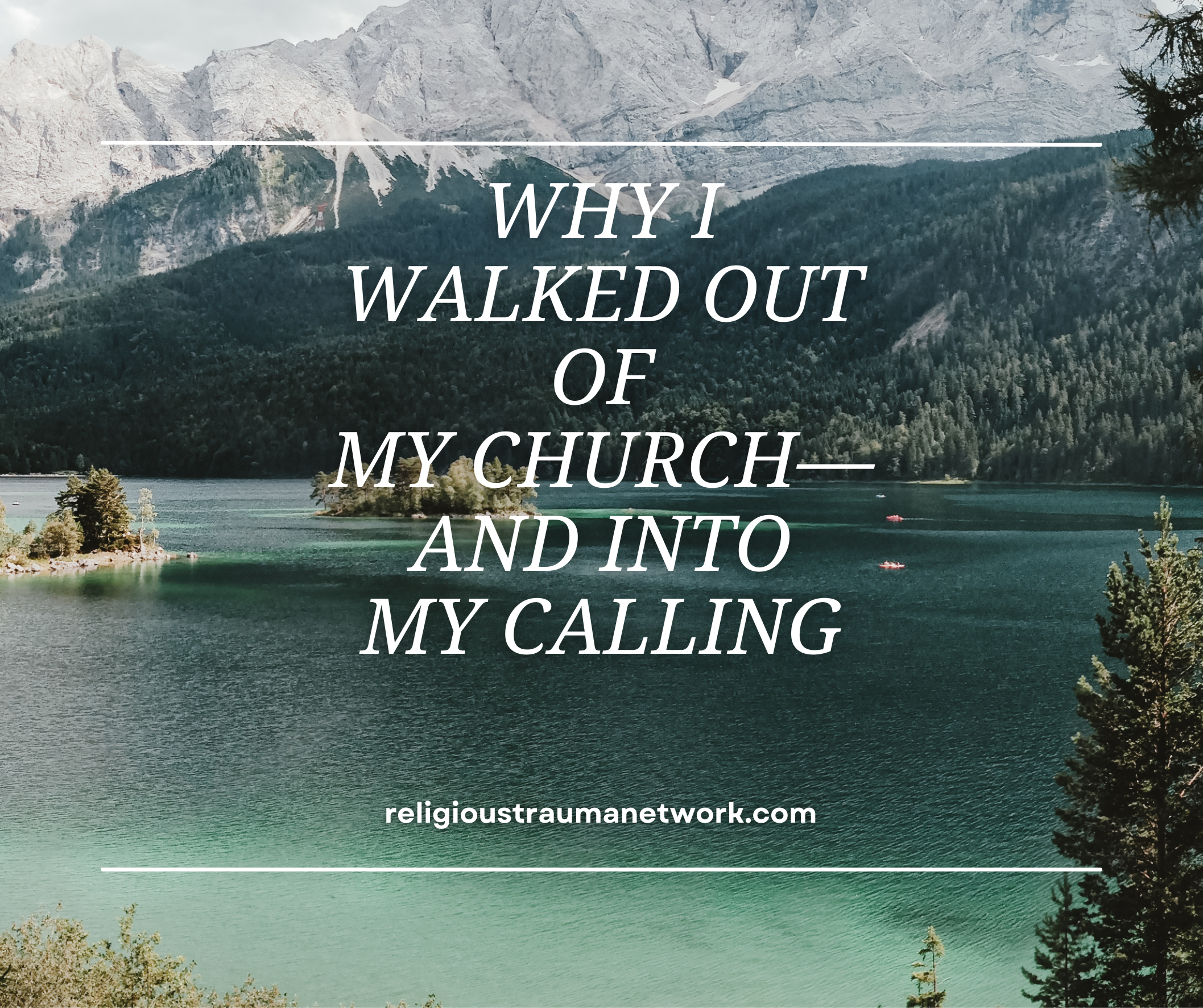
Why I Walked Out of My Church—and Into My Calling
I hadn’t told anyone what was happening—not my mother, not my best friend, not even a neighbor. No one knew.
The abuse had started on the very first day of my honeymoon.
I hadn’t seen him flip that switch before we said our vows, but the insanity began immediately after. I didn’t know what it was. I had never seen anything like it before. I didn’t know how to fix it, how to stop it, or where to turn.

Us Four S’more: What would make the biggest difference for you when it comes to support, healing, and justice?
Sticky questions, personal answers:
The Religious Trauma Network’s team mashup.
What would make the biggest difference for you-or for those around you-when it comes to support, healing and justice?
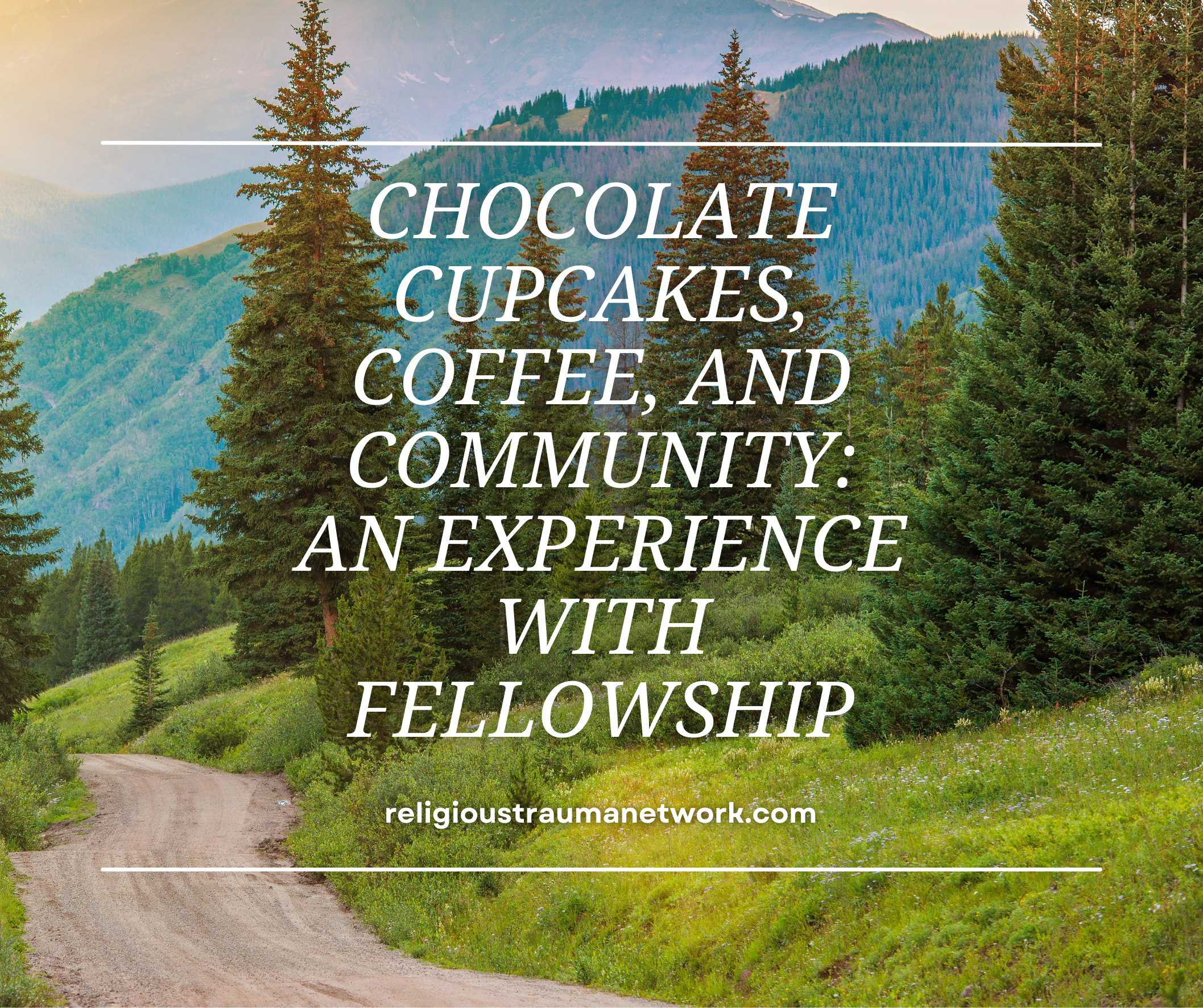
Chocolate Cupcakes, Coffee, and Community: An Experience with Fellowship
“It’s a first birthday party. There should be cake.“
With that text from fellow mom and friend Margo* - and the hope of chocolate - giving me strength, I peeled my body off the couch, already exhausted from chasing a toddler all morning. Our friends were worth celebrating. At the party, I told Margo that I was thinking about going to church in the morning, but that I was nervous. My husband had to work, and I hadn’t gone to church without him in almost a decade—certainly not alone with our daughter. Later that night, Margo texted me to tell me that she was grabbing coffee in the morning, including one for me. It wasn’t until I was driving to church that I realized what she was doing.
